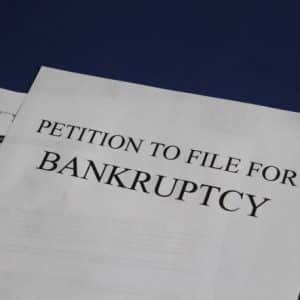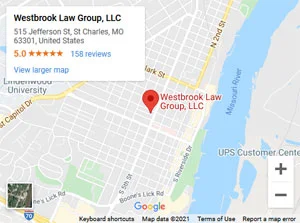Gain The Medical Debt Relief You Deserve Through Bankruptcy
Accruing substantial medical costs can be incredibly burdensome, but there are also opportunities for potential solutions. Choosing bankruptcy comes with various benefits, providing an opportunity for a new start. For those facing overwhelming medical debt, seeking medical debt relief through bankruptcy is recommended.
Following a medical emergency or injury, the repercussions of the illness persist as unpaid expenses accumulate. While recovering, the question of how to cover the costs arises. Perhaps you sustained an injury, leading to disability, and this situation has further escalated to a loss of employment and a growing stack of unpaid bills.
Some Missouri residents turn to bankruptcy as a common recourse for dealing with extensive medical debt, offering the possibility of either eliminating or easing the repayment of such financial obligations.
Short Summary:
- Bankruptcy has two main types: Chapter 7, which involves debt discharge, and Chapter 13, which entails a repayment plan.
- While not a legal term, “medical bankruptcy” is a common expression stemming from the heavy burden of high medical debt.
- In the scope of bankruptcy inclusions, it is imperative to address all debts, not just medical ones.
- The causes of medical debt often arise from unexpected illnesses, emergency care, and insufficient insurance coverage.
- The high cost of healthcare worsens through deductibles and the complexities associated with healthcare providers, posing an additional challenge.
- In Missouri, the impact of financial hardship can lead to bankruptcy, foreclosure, and heightened mental stress.
- Debt eradication methods vary between the swift resolution of Chapter 7 and the structured repayment plan offered by Chapter 13.
- Additional resources for managing financial challenges include non-profit financial counseling, Medicaid, and various healthcare assistance programs.
- For those with good credit, alternatives include negotiation with healthcare providers and seeking income-based hospital aid.
Many individuals frequently ask about bankruptcy and medical debt relief, particularly in St. Charles, Missouri. Remember, there is not a specialized bankruptcy chapter solely dedicated to medical debt. However, it is essential to recognize that medical debts are classified as unsecured debts, rendering them eligible for discharge through both Chapter 7 and Chapter 13 bankruptcy.
What is Bankruptcy?
Bankruptcy is a legal process designed to provide financial relief to individuals or businesses burdened with overwhelming debt. It involves filing a petition in a bankruptcy court, where the debtor seeks protection from creditors and a chance to reorganize or eliminate their debts. The goal of bankruptcy is to offer a fresh start by discharging or restructuring debts, allowing individuals or businesses to regain control of their financial situation.
What is Medical Bankruptcy?
From a legal standpoint, the term “medical bankruptcy” lacks a specific definition. Some bankruptcy lawyers use this expression to describe bankruptcy primarily caused by substantial medical and doctor-related debts. It is crucial to understand that filing for bankruptcy solely to manage medical debts is not allowed. All types of debts, not just medical ones, must be included in the bankruptcy petition.
The filing requires a comprehensive list of all debts, encompassing medical debts. In cases where medical debts result in wage garnishments, individuals often turn to bankruptcy as a solution to promptly cease these actions and navigate unexpected financial challenges.
What is Medical Debt?
The complex legal and economic healthcare environment in the United States can result in increased medical costs for numerous individuals. As a consequence, medical debt can accumulate swiftly and without much effort. Common contributors to the build-up of medical debt involve unforeseen illnesses, emergency medical care, insufficient insurance coverage, and prescription expenses.
Mounting medical debt has the potential to negatively impact credit scores, leading to debt collection efforts and legal actions like wage garnishment. Furthermore, resolving medical bills can be challenging due to intricate insurance policies, complicated billing codes, and the additional stress of not receiving necessary medical treatment.
How Does Medical Debt Accumulate?
Despite having medical insurance to mitigate the expenses of medical bills, the cost of medical treatment remains challenging for many individuals. Factors such as high deductibles, complexities in dealing with insurance providers, and charges for out-of-network treatments contribute to the overwhelming nature of medical debt.
A single hospitalization for a medical event lasting a few days can result in a bill exceeding $50,000. Even with insurance coverage, individuals may still be responsible for a substantial amount out of their pockets. For those without insurance, facing an overwhelming bill becomes a harsh reality.
Healthcare expenses in the United States are rising, often constituting a significant portion of Americans’ financial burdens. If you find yourself drowning in unpaid medical debt, feeling the weight of debts that seem impossible to settle, you are not alone.
Unresolved medical costs play a major role in numerous personal bankruptcies. While it is challenging to pinpoint the exact number of bankruptcies directly caused by medical debt, it is a main contributing factor in nearly 50% of the cases filed.
What is the Impact of Medical Debt on Missouri Residents?
Medical debt poses significant challenges for residents of Missouri, often culminating in financial hardships such as bankruptcy, foreclosure, and an escalating cycle of debt. The impact of medical bills can be daunting, inducing stress, anxiety, and sleepless nights for both individuals and their families.
Those grappling with medical debt may defer seeking essential medical care, jeopardizing their health and overall welfare. Routine check-ups might be neglected, symptoms overlooked, and preventive treatments avoided due to the fear of incurring additional expenses. This hesitancy to seek timely medical attention can contribute to the development of more severe health issues, compounding the existing challenges.
What are the Causes of Medical Debt?
Several factors contribute to the accumulation of medical debt in Missouri, encompassing high deductibles, insufficient insurance coverage, unexpected medical emergencies, and the increasing costs of prescription medications and treatments. Tackling these underlying issues is imperative to prevent more individuals from succumbing to overwhelming medical debt.
High deductibles, common in many health insurance plans, impose a considerable financial strain on Missourians. Even with insurance, individuals may shoulder a substantial portion of their medical expenses, leading to an ongoing struggle with healthcare costs.
The absence of insurance coverage significantly contributes to medical debt, particularly affecting those in low-income brackets who may lack access to affordable health insurance options. Without insurance, individuals become susceptible to exorbitant medical bills, resulting in unmanageable debt.
Unexpected medical emergencies, ranging from sudden illnesses to severe injuries or chronic conditions requiring ongoing treatment, can catch individuals off guard, leaving them financially unprepared for the consequences. The swift escalation of medical care costs exacerbates the cycle of debt.
The soaring costs of prescription medications and treatments worsen the burden of medical debt. Missourians reliant on essential medications to manage health conditions may face escalating prices, forcing them between health and financial stability.
Medical debt is pervasive in Missouri, impacting individuals across diverse backgrounds. The ramifications of this debt are severe, leading to financial struggles and compromised health. By addressing the root causes of medical debt and implementing comprehensive assistance programs, Missouri can strive toward a future where healthcare is accessible and affordable for all residents.
Will Declaring Bankruptcy Erase My Medical Debt?
The outcome of your medical bills in bankruptcy hinges on the type of bankruptcy filing you pursue. There are two paths available to potential clients for addressing medical debts through bankruptcy:
- Chapter 7: In Chapter 7 bankruptcy, the filer can discharge all unsecured debts, relinquish and discharge unnecessary or unaffordable secured debts, and accomplish this in about four months. There’s no financial cap on the amount that can be discharged through this bankruptcy type. By the end of the proceedings, the filer’s unsecured debts—comprising credit card debt, certain back taxes, wage garnishments, auto repossession, and medical expenses—are discharged. The filer retains ownership of all property within state-imposed exemption limits. Though termed “liquid bankruptcy,” the liquidation of personal assets is infrequent.
- Chapter 13: In Chapter 13 bankruptcy, the filer’s debts undergo classification, and a portion of that debt is repaid. Referred to as “reorganization bankruptcy,” the filer restructures a segment of their debts into more manageable payments over an extended period, usually three to five years. Whether the filer’s unsecured debt is fully repaid during this period depends on their income. After the payment plan, all debts, whether repaid or not, are discharged. This bankruptcy type benefits individuals dealing with medical debt, high car payments, or overdue mortgage payments.
Remember, in Chapter 7 bankruptcy, debtors discharge their medical expenses alongside all other unsecured debts. In Chapter 13 bankruptcy, medical bills become part of the overall debts in a partial repayment plan. If you opt for Chapter 13 bankruptcy to seek medical debt relief, the amount paid to creditors is determined by your income, expenses, and non-exempt assets.
What are the Additional Resources for Medical Debt Relief in Missouri?
Alternative resources exist for individuals searching for medical debt relief in the state.
- Assistance from Non-Profit Organizations
Numerous non-profit organizations in Missouri specialize in tackling medical debt issues and assisting those experiencing financial challenges. These organizations commonly offer financial counseling, guidance on managing medical bills, and advocacy efforts to enhance affordable healthcare.
- Government Initiatives for Medical Debt Assistance
Both state and federal governments have instituted programs to assist residents of Missouri in dealing with medical debt. Initiatives such as Medicaid, the Children’s Health Insurance Program (CHIP), and the Missouri Medical Assistance for Workers with Disabilities (MAWD) program are noteworthy examples. Explore these programs to determine eligibility and avail of their offered support.
What Other Choices Exist Besides Bankruptcy for Managing Medical Debt?
Individuals with a favorable credit standing might explore several options to address significant medical bills.
- Engage in Negotiations with the Medical Provider
Initiate negotiations after resolving any insurance payment issues. Once all available insurance coverage has been applied, consider negotiating a settlement with the creditor. If the bill pertains to uninsured medical expenses, the medical provider may be willing to waive a portion of the total amount. Many hospitals and healthcare providers routinely offer bill waivers or discounts for uninsured patients.
- Explore Assistance Programs
Most hospitals provide assistance programs that, if you meet the criteria, can offer you either free or reduced-cost hospital care based on your income level. For instance, the Hospital Care Assurance Program (HCAP) in some states covers expenses for essential medical services. Additionally, non-profit hospitals enjoying federal tax-exempt status may be obligated to provide more lenient billing terms for financially strained patients. You can ask your hospital’s financial aid counselor to gather more details and apply for relevant coverage.
Call Our St. Charles Bankruptcy Attorney Now!
Clients often inquire about possibly filing for bankruptcy for medical debt relief in St. Charles, Missouri. While there isn’t a distinct bankruptcy chapter exclusively designated for medical debt, it’s crucial to understand that medical debts fall under unsecured debts, making them eligible for discharge through Chapter 7 and Chapter 13 bankruptcy.
If you are contemplating the prospect of filing for bankruptcy and medical debt relief, it is advisable to arrange a free consultation with Westbrook Law Group, LLC. During this consultation, we will thoroughly assess your financial circumstances and provide insights into the potential elimination of your medical debt. Regrettably, the financial aspect often takes over one’s health, and filing for bankruptcy may offer a viable solution to alleviate the burden.
Reach out to our St. Charles bankruptcy law firm for a complimentary financial consultation, allowing them to address your inquiries. Whether bankruptcy suits your situation or not, we are committed to providing honest advice. If bankruptcy proves to be a strategic step towards securing your future financial well-being, we will leverage our knowledge and experience to guide you through the process, helping you overcome the financial stress associated with this phase of your life.






